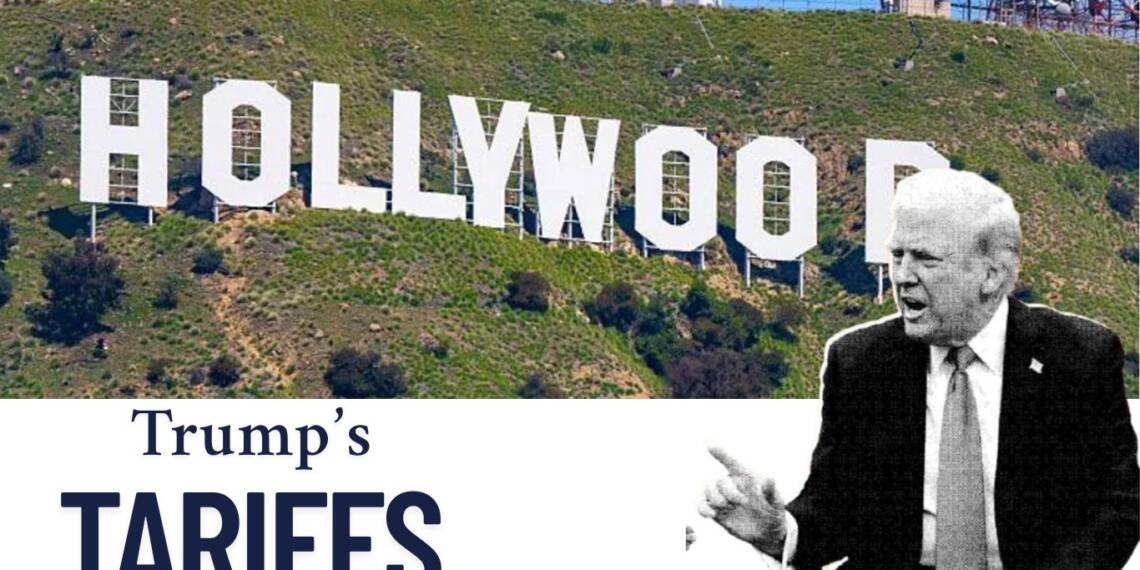In a sudden but not unexpected move, US President Donald Trump decided to announce a 100% tariff on foreign-produced films on Sunday. This is the first time the trade war entered the arena of the entertainment industry.
In a social media post, Trump shared that the American film industry was dying a “very fast death” due to incentives offered by foreign countries to lure US filmmakers.
Notably, Trump has not only imposed strict tariffs on several nations but has also taken a firm stand on China. The tariffs were applied since ‘Liberation Day’ the previous month. However, when countries reached a trade deal, Trump paused its effect for 90 days, though a baseline of 10% remains in effect.
China, a geopolitical rival of the US, was excluded from the pause and was hit with a tax of 145% on all imports. China retaliated with 125% tariffs and new export controls on US goods. Since then, the economic war has continued between them.
According to reports, Trump has directed agencies, such as the Commerce Department, to start “immediately” imposing a 100% tariff on all foreign-produced films that are about to be released in the US.
Commerce Secretary Howard Lutnick quickly responded through social media posts and said, We’re on it.”
However, it is not yet clear whether the measure would target foreign studios, US companies filming abroad, or both.
The reports also mention that the US president also framed foreign film productions as a national security threat, asserting that other countries were using cinema as a vehicle for “messaging and propaganda.” Previously, films and cinemas has been a foreign policy tool for projecting soft power. The US was at the forefront of it in the Cold War era when they sold their ideology, power projections, and space capabilities through Hollywood movies like Star Wars.
“WE WANT MOVIES MADE IN AMERICA, AGAIN!” he declared. According to media reports, Trump’s decision came after the meetings at his Mar-a-Lago Club with actor Jon Voight and his manager, Steven Paul, this weekend. The report says, they presented the president with their plans for more federal tax incentives for US film and TV production.
In order to help promote US job growth in the entertainment sector, Trump appointed Voight, along with actors Mel Gibson and Sylvester Stallone, as special ambassadors to Hollywood in January. Hollywood film production has gradually been increasingly shifting abroad as countries such as the UK, Canada, Australia, and New Zealand expand tax incentives to attract film and TV projects.
Also Read: Macron wants Investment Freeze on the US after Trump’s Sweeping Tariffs
According to FilmLA, the region’s film office, the film and television production in Los Angeles has declined by nearly 40% over the last ten years.
US-based shoots have declined over the years, with studios seeking lower costs and bigger rebates abroad. According to Ampere Analysis, global content spending is expected to hit $248 billion in 2025, mainly driven by streaming platforms. This could further push for more affordable production centres.
Trump’s decision also a part of larger retaliatory measures on China, as China decided to “moderately reduce” the number of Hollywood films permitted in the country last month.
According to analysts, this tariff war could be devastating for the nations. The action and reaction are parts of broader geopolitical rivalries between these two nations in order to limit soft power projects on each other’s soil.
The information war is real in the 21st century, and controlling any misconceptions becomes imperative. Movies, videos, and social media are the main tools used in this new era of the war of perception building. However, justifying tariffs on the grounds of national security would be difficult for the Trump administration.








